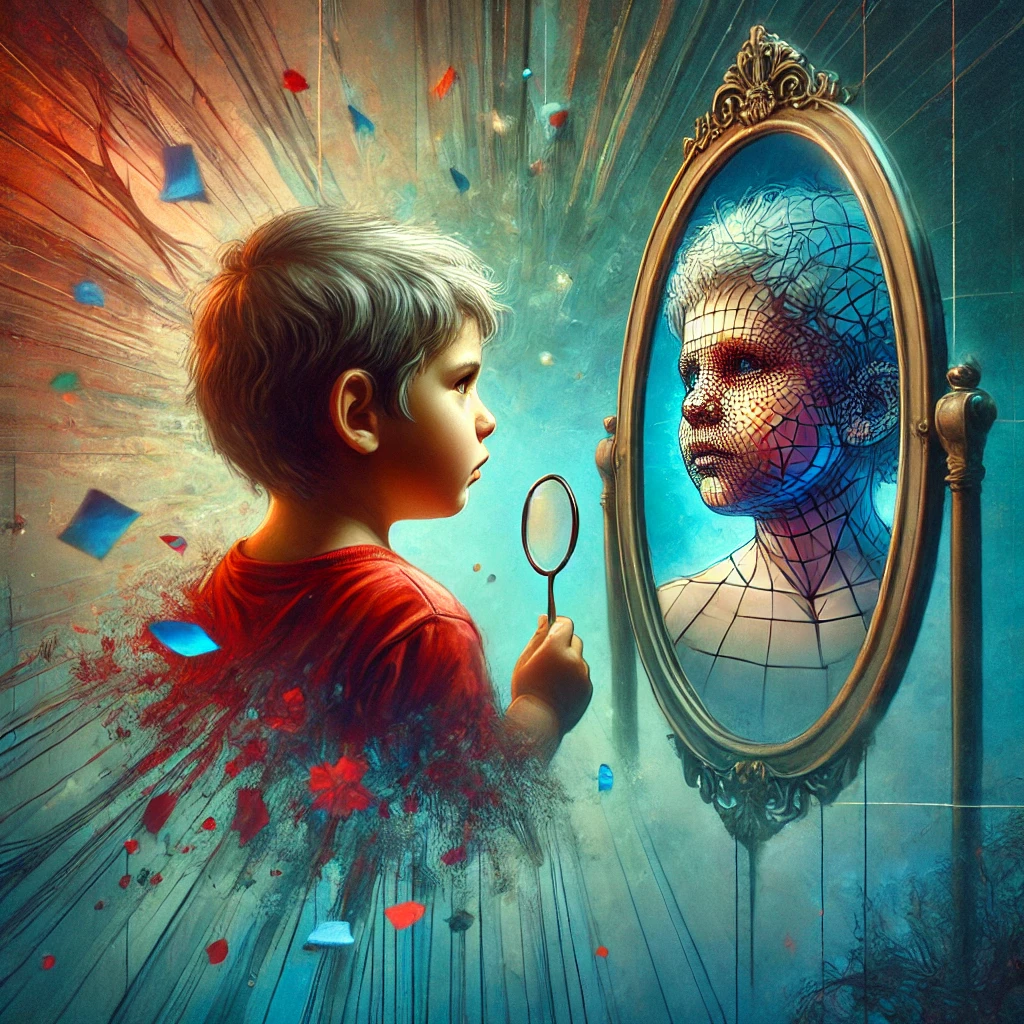Jacques Lacan’s mirror stage theory reveals that the autonomy of the self is fictitious, showing that the self is formed through the image of the self. In addition, human desires are constructed through the desires of others, which means that the self is formed in relation to others.
Jacques Lacan, a French psychoanalyst and philosopher, continued and reinvented Freud’s psychoanalysis. He became one of the key figures of modern thought by adding important philosophical reflections on human existence to psychoanalysis. Lacan’s ideas have had a profound impact on a wide range of fields, including philosophy, literature, and film, and his theories have become an important tool for understanding the complexities of the human psyche. In particular, Lacan’s theories are useful for analyzing the psychological experiences of individuals in cultural and social contexts.
Through his theory of the mirror stage, Lacan sought to reveal how fictitious the autonomy of the self is. According to him, the mirror stage is when a child forms an identity based on the image of his or her body in a mirror and organizes the external world around it. At around 6 to 18 months of age, the child is initially unable to distinguish the image in the mirror from external objects. Everything is blurred together like chaos. Then, at some point, the child recognizes his image and becomes fascinated by it, trying to hold on to it and not letting go. The seemingly simple mirror image becomes an archetype for all subsequent stages of psychological development.

During this stage, the child feels an intense fascination with the image in the mirror because they have no control over their own body. This experience is the first step in the child’s awareness of himself as a subject separate from his body. What the experience of the mirror stage shows is that there is no self-evident self-consciousness or a priori, absolute self on which to base perception. According to Lacan, the self is formed at some point by separating the image of oneself from the image of another object and fixating on it. In the mirror stage, children are infatuated with their own image because it is the first time they see their own visible body and it gives them a sense of presence. The externally visualized image is mine, but it is actually a third-party object onto which the subject’s narcissism is projected. My reflection in the mirror is just a shadow that faces me as a reflection of my body in a visible space to keep my gaze, and it is an object that does not show my inner self, so it is easy to idealize the subject, always remaining as the other. In this process, the child idealizes his body image and develops a desire to identify with it.
In the end, the mirror stage is a very happy stage, but it is also self-alienating because it is a stage of fictional construction and the self is constructed through the other. Lacan once said, “The first place where the subject finds itself and feels itself is in the other.” The other can be a real person, or it can be your reflection in the mirror. Furthermore, any object in which the subject can identify himself is the subject’s Other. A human being can exist as a subject only when his or her existence is recognized through the other. Structurally, then, human desire is not directed toward one’s own, but toward the desire of the other and the object it is aimed at. Lacan explained this with the concept of the “object of desire,” which means that an individual’s desire is always related to the desires of others. Desire seems to be a pure expression of one’s inner will, but it is also an expression of alienation in that it seeks to be recognized by the other and desires what the other desires. The saying that the self is the other expresses this alienation.
Thus, Lacan’s theory seeks to reveal how human self-formation and desire are constructed in a social context and how they are shaped by our relationships with others. His ideas have had a profound impact on modern psychology and philosophy, and play an important role in understanding individual psychological experience.
